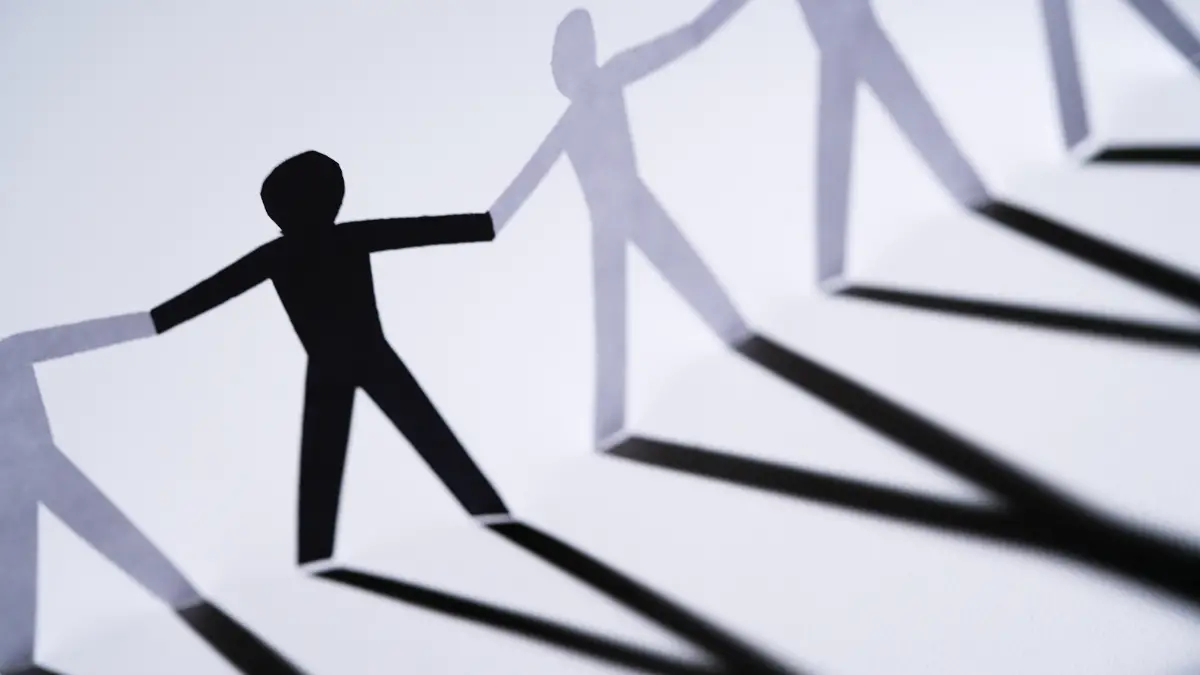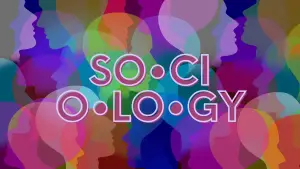Editorial Note
Thank you to our generous sponsors, Sociologists for Women in Society, Center for Equity Education, American Sociological Association’s Section on Sociological Practice & Public Sociology, Hartman Castle Preservation Corporation, Island Acres Resort Motel, Alpha Kappa Delta, Pacific Sociological Association, and the Association for Applied & Clinical Sociology for helping us make Applied Worldwide’s 2024 “Why is Sociology Important?” student essay competition a success!
This essay on the importance of sociology has been published on behalf of Applied Worldwide’s 2024 Global Student Essay Competition. For the 2024 competition, we awarded 16 student essayists across six countries and will be sharing each winning essay in our “Why is Sociology Important?” essay collection.
This sociology essay was written by Kiruthika Palraj, a 3rd year Sociology student from Stella Maris College, Chennai, India and earned a 2nd place prize in the competition.
Sociological Analysis: A Key Approach to Understanding the Social Vulnerabilities of Ethnic Minorities, Kiruthika Palraj
Throughout history, society has often been marked by events that denote the subjugation of one group of people by another group that deems itself superior to everyone else in the societal structure. This perceived “superiority” has historically stemmed, and continues to do so, from a variety of factors including but not limited to gender, race, nationality, financial status, religion, language, and sexuality. The manifestations of such entrenched forms of discrimination can be observed in historically and culturally significant events like the French Revolution, the Anti-Apartheid Movement, and the Holocaust.
To understand such deep-rooted biases that exist in society, we urgently need sociology—theory and praxis. As Auguste Comte, the father of Sociology, has famously stated, sociology is the “science of society.” Sociology is undoubtedly the indispensable pathway to deconstructing and comprehending the intricate patterns of interrelationships among the diverse facets of society, wherein groups with competing interests vie for limited resources such as wealth, power, influence, or even basic necessities like food, shelter, or employment.

The Awakening of My Sociological Imagination
It was during my 4th semester in college that I really understood the importance of Sociology in addressing systemic inequalities. I was in my “Sociology of Ethnic Relations” class when I realized the depth and gravity of marginalization that certain individuals and groups are subjected to, simply because they speak a specific language or worship a particular God. I realized that my understanding of prejudice and discrimination was limited to gender-based discrimination and racism, unaware of the broader issues of ethnic discrimination. That course truly opened my eyes and made me discern both my lack of knowledge surrounding the subject and the privileged position from which I was viewing the world.
As part of the coursework for the semester, we were asked to do a sociological analysis, for which I chose the theme “Minority Ethnic Groups.” I chose the ‘Saurashtra’ community in Tamil Nadu for my analysis since one of my closest friends is part of the community and there was hardly any sociological literature about them. What amazed me is that, upon completing my assignment, for the first time, I gained a clearer idea about the life of someone I had been witnessing and hearing about for so many years. I knew then why she felt excluded a lot, living her life as an ethnic minority in a Tamil majority community. It helped me connect with her better. It made me feel humbled and human.
By exploring the ‘Saurashtra’ community in Tamil Nadu for my sociological analysis, I found myself gaining astute insights into their history and finding a deeper resonance with the experiences my friend had recounted to me. It was a journey of understanding that brought me closer to her and the pressing issues of ethnic identity and belonging. I could feel my worldview widen to recognize that not everyone gets to see the world through rose-tinted glasses. As elucidated by sociologist C. Wright Mills in his concept of “sociological imagination,” I was able to see the connections between individual experiences and broader societal structures.
Some Insights from My Sociological Analysis
Transitioning from introspection to analysis, my exploration of the Saurashtra community in Tamil Nadu revealed a few valuable insights into the complexities of ethnic assimilation within minority groups, specifically within the context of India.
An ethnic group is “a group of people who are generally recognized by themselves or by others as a distinct group, with such recognition based on social or cultural characteristics” (Farley, 2008). Saurashtra is a region in the western part of Gujarat, a state in India, comprising eleven districts. The ethnic group that originally inhabited this locale is called the ‘Saurashtrians.’
Here, it is important to note that Saurashtrians had moved from Gujarat (their place of origin) over 600 years ago, as a result of a multitude of push and pull factors, and settled down in multiple places of destination—the push factors being violence and persecution due to their religious identity as Hindus, and the pull factors outside of Saurashtra being security, demand for their labor and high wages. These factors contributed to their identity of being a victim diaspora due to the endurance of similar trauma. Henceforth, they settled in Tamil Nadu, a South-Indian state more than 2,000 kilometers from Saurashtra. However, they are still identified as an ethnic minority in Tamil Nadu not just due to their significantly lesser number compared to the Tamil ethnic majority, but primarily due to the sheer lack of power and authority at the hands of the community, to advocate for and make choices that affect them.
Examining the Majority vs. Minority Equation
Some Saurashtrians who have migrated to different parts of India are persistent in maintaining their distinct ethnic identity in the host society (ethnic integration). However, it is also observable that there is a great degree of assimilation of Saurashtrians into the Tamil community, with the ethnic minority adapting the language, culture, and traditions of the ethnic majority. But it is also crucial to note that, sometimes, such assimilation is not entirely out of their own will. Tamil Nadu Tamil Learning Act, 2006 made the Tamil paper compulsory in the tenth standard board exam while minority linguistics was considered an optional subject (Gyanvi Khanna, 2023). Therefore, a degree of imposition of the majority culture is also observed. Having the choice to learn only one’s native language is a prerogative reserved for the ethnic majority.
Most Saurashtrians don’t have any ties with their homeland Saurashtra but they still feel proud of their identity as Saurashtraians. One could observe a greater degree of self-assertion of their ethnic identity. They speak in their language, Saurashtra, among the members of their community. They occasionally visit their relatives in different Saurashtrian enclaves across India (Nair, 2023). During their visits, there is a greater degree of exhibition of the Saurashtraian ethnic markers. This can be inferred as the situational selection of ethnicity by the Saurashtrian community. Their efforts in establishing the internal and external aspects of their ethnic boundaries are consistent.
The problem here is that most ethnic minorities, not just Saurashtrians, tend to face ethnic penalties (discrimination) in accessing spheres such as the labor market, social networks, and public services, if and when they do not completely assimilate into the ethnic majority. Their basic human right and desire to have and exhibit their unique identity places them at a disadvantaged position in the social hierarchy.
Sociology as a Catalyst for Social Change
It’s not every day that we think about the problems of people who are part of our lives; much rather, we rarely ever think about the issues faced by members of an ethnic minority community in distant parts of the world. But Sociology makes us do exactly that. What other discipline of study, if not Sociology, could address such sensitive and pressing issues more diligently?
If it weren’t for Cooley’s groundbreaking theory of the “Looking-Glass Self,” we wouldn’t have understood self-perception the way we do today, especially how others, here, the ethnic majority, influence how ethnic minorities view themselves. If it weren’t for Sociology, I’m not sure we would be studying how intersecting vulnerabilities are socially created by power structures, for a financially weak, Cantonese-speaking trans woman in Greece. Most importantly, if it weren’t for Sociology, we wouldn’t be able to formulate affirmative policies that bring about actual change in the world.
While we might want to believe that ethnic discrimination is a thing of the ancient past, instances from modern society say otherwise. Consider the story of Lise Meitner, who developed, during World War II, the theory of nuclear fission, the process that enabled the atomic bomb. But her identity—Jewish and a woman—barred her from sharing credit for the discovery (Miller, 2023). More recently, Ilhan Omar, a U.S. Congresswoman, has been a victim of online harassment, death threats, and Islamophobic attacks since her election to the House of Representatives in 2018, due to her Somali heritage and Islamic faith.
This is exactly why we need sociology and sociological literature. How else would we be able to dissect and analyze the roots of the sociological dimensions of ethnic groups? How else would we know how to alleviate the burdens of ethnic minorities? Who would help the governments recognize what the problems of ethnic minorities are, when even those people who constitute the government sadly become victims of ethnic violence themselves?
Final Thoughts
Sociology investigates the “human” elements that constitute society. It involves the study of human social relationships and institutions, encompassing everything from the micro-interactions among people to the larger structures and systems that shape societies. Sociology addresses topics like culture, socialization, identity, social inequality, power dynamics, and social change, which the natural sciences often tend to overlook. With several ongoing ethnic crises around the globe, now is the moment for sociologists to step up and lead and dismantle these systems of disparity. We need to roll up our sleeves and delve into the messy complexities of society. That requires looking at how power plays out, as well as taking into consideration the human past that influences current conflicts, and truly getting to grips with how different groups interact. Sociologists are not just here to theorize. We are here to spark conversations, challenge assumptions, and propose real-world solutions that promote peace and justice. This, I believe, is why Sociology is important.
References
- Khanna, Gyanvi. (2023, September 22). Prescribe Minimum Marks Requirement For Languages Other Than Tamil & English Also In TN Schools: Supreme Court In Linguistic Minorities’ Plea. Live Law. https://www.livelaw.in/supreme-court/suprem-court-tamil-paper-manda tory-10th- clas s-exam-minority-linguistic-language-tamilnadu-tamil-learning-act-238394
- Miller, K. (2023, October 23). Lise Meitner, the “Atomic Pioneer” Who Never Won a Nobel Prize. The New York Times . https://www.nytimes.com/2023/10/02/science/lise-meitner-fission-nobel.html
- Nair, Avinash. (2023, March 30). Tamil Sangam: Saurashtra migrants in TN invited to revisit their roots. The Indian Express. https://indianexpress.com/article/cities/gandhinagar/tamil-sangam-saurashtra-migrant s-in-tn-invited-to-revisit-their-roots-8526926/
Meet our 2024 Global Student Essay Competition Sponsors!

Sociologists for Women in Society is a nonprofit professional feminist organization dedicated to:
- Transforming the academy and professional organizations, including our own, by actively supporting feminist leadership and advancing career development of feminist scholars.
- Recognizing that structural inequalities impact those marginalized by their identities and that this requires proactively promoting the creation of inclusive institutional spaces in an ongoing manner and by practicing critical reflexivity.
- Advocating and encouraging the development of sociological feminist theory rooted in intersectionality and cutting-edge research for publication and dissemination.
- Promoting social justice research within local, national, and international activist spaces by supporting scholar-activist communities seeking to dismantle intersecting systems of oppression.

The Center for Equity Education (CFEE), established in 2020 as a 501(c)(3) nonprofit, addresses a gap in expert-led education for organizations, especially those with limited resources. At CFEE, our mission revolves around empowering organizations with comprehensive knowledge on federal and state civil rights, specializing in harassment and discrimination, including sexual harassment.

Hartman Castle Preservation Corporation, a 501c3 non-profit, is a A community grassroots movement formed to purchase and preserve the Hartman Castle in Gunnison, CO

The purpose of the American Sociological Association’s Section on Sociological Practice and Public Sociology is to advance sociologically-informed research and practice, to further public discussion of sociological issues, and to promote the use of sociology to inform public policy.

Island Acres Resort Motel is a restored authentic 1950s lodging property in the style of the tourist court motel. Embracing the appeal of a bygone era, where history blends with hospitality.

Alpha Kappa Delta, the International Sociology Honor Society, seeks to acknowledge and promote excellence in the scholarship in the study of social problems, sociology, and intellectual activities that lead to the improvement in the human condition.

The Pacific Sociological Association is committed to serving sociologists, faculty, applied professionals, and students. We strive to create a professional community that reflects the diversity of our region and enhances the diversity of our discipline. We are committed to inclusivity and equity in our organization, to promoting social justice by examining and challenging the structural and institutional barriers in our discipline, and to building pathways for the next generation of sociologists.

The Association for Applied and Clinical Sociology (AACS) promotes applying social scientific knowledge and methods to develop constructive solutions. We provide educational, programmatic, mentoring, networking, and policy resources in a supportive professional community.







